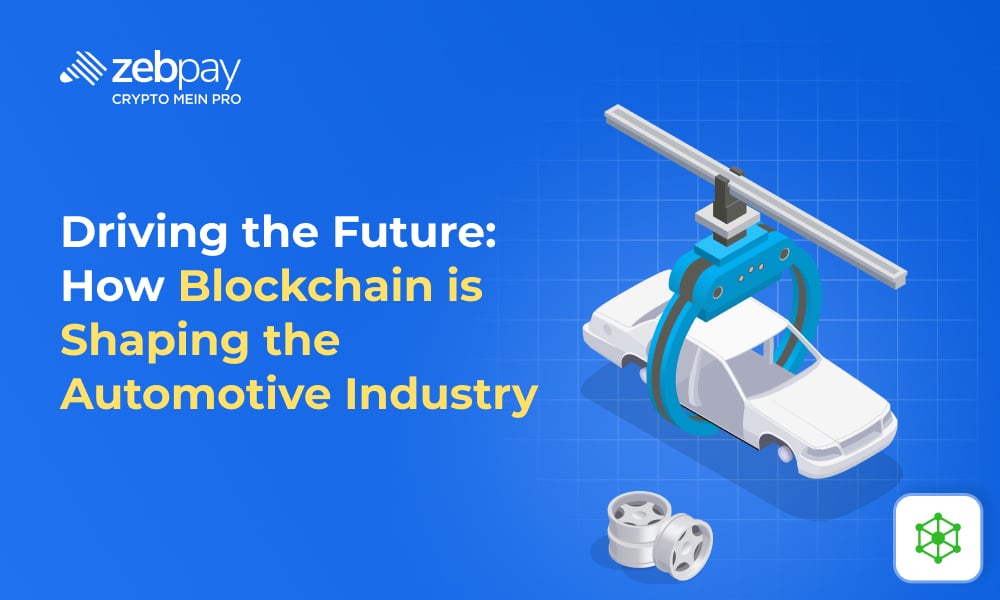The advent of blockchain applications has changed the digital landscape in ways never seen before. It promises immutability, transparency, traceability, and efficiency. Beyond crypto, blockchain is revolutionising other industries as well. It is actively transforming military infrastructure, real estate, digital content, logistics, gaming, and more. As the world evolves, the automobile industry is also making efforts to utilise blockchain for modernising its digital infrastructure.
Ford and Toyota Double Down on Blockchain Patents
Ford and Toyota continue to lead the development of blockchain-based vehicle technology, according to a series of recent patent filings from both automotive firms. Together, they filed a total of at least 43 blockchain-related patents in the second quarter of 2024. Overall, the number of patents filed in the industry was lower in Q2 than in the previous quarter.
However, data from GlobalData Patent Analytics and Just Auto shows that Ford and Toyota bucked this trend. Ford increased its filings from just three in Q1 to 14 in Q2, while Toyota saw an improvement from 25 patents in Q1 to 29 in Q2.
Blockchain for Automotive Applications
The patents filed by Ford, Toyota, and other automotive industry companies in recent months address a range of concerns within the sector. Ford, for instance, recently filed a patent aimed at providing an immutable provenance for vehicle ownership. According to the filing, Ford’s system would ‘manage ownership data of a vehicle, including changes in ownership, via smart contracts that execute automatically in response to real-time event data.’ This system would use blockchain as an immutable ledger, recording vehicle title changes as they occur. With this technology, smart contracts could seamlessly facilitate the exchange of the physical vehicle and its associated ownership assets (the title) in a single, autonomously executed action.
Meanwhile, Toyota’s recent patent filing suggests the company is exploring a blockchain-based system to manage non-fungible tokens (NFTs) related to its vehicles. This system would ensure that vehicles in storage, such as those held by dealers until sale, are accurately recorded on the blockchain ledger.
Driverless Vehicle Technology Stagnation
Toyota and Ford have both shown signs of adjusting their strategies to prioritise ‘driver assistance’ technologies over fully autonomous vehicles. A recent gathering of hundreds of insiders from the ‘driverless car’ industry revealed that, while optimism remains high, the collective sentiment in the tech world is that the challenges preventing robotaxis from going public are yet to be fully resolved.
The shift toward mature blockchain technology could provide Ford and Toyota with a competitive advantage in the future, even within the autonomous vehicle sector. One key area being explored by both companies is the potential impact of blockchain-based city infrastructure on driverless vehicle technology.
Future Outlook
As blockchain technology continues to evolve, its role in the automotive industry is poised to grow even further. Future advancements in blockchain are expected to create seamless integrations between smart vehicles and city infrastructure, enabling features like automated toll payments, real-time traffic management, and enhanced vehicle-to-vehicle communication. Additionally, blockchain could bolster cybersecurity within connected cars, protecting sensitive data and improving vehicle safety. With further developments in decentralised networks, automotive firms may also explore blockchain’s potential in creating fully transparent supply chains, improving traceability of vehicle parts and materials. These innovations have the potential to redefine not only how vehicles are built but also how they interact with the world around them.
Conclusion
As blockchain matures and diversifies, industries worldwide are eagerly adopting its transformative capabilities. The automotive sector, particularly with the likes of Ford and Toyota, is leveraging this technology to innovate and modernise its digital infrastructure. From patents focused on ownership management and NFTs to exploring blockchain-based city infrastructure, automotive companies are laying the groundwork for a future driven by blockchain. While the shift toward driver assistance technologies reflects the challenges faced in autonomous vehicles, blockchain’s role in shaping the future of mobility is undeniable. By continuing to invest in blockchain technology, the automobile industry is not only addressing present challenges but also preparing for a more connected, secure, and efficient future in transportation.
Unravel everything that you need for your crypto journey via ZebPay blogs. Get started today and join 6 million+ registered users on ZebPay!







